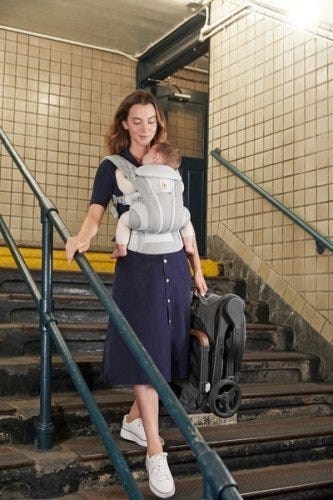Midwifery in Germany differs in many details from the situation as it is in the United States. Sure, on both sides of the ocean mothers and fathers wish nothing but the best for the newborn life, but the way to achieve this may be somewhat different. This article focuses on midwife education in Germany pointing out the importance of freelancers in this area. Midwifery in Germany is a health care profession which takes care of women in pregnancy, labor, birth and postpartum. There are circa 18,000 midwives in Germany who have passed their exam at one of the total of 58 schools of midwifery existing here. As for the foreign midwives from all over the world that wish to work in Germany, they may have to visit one of the German schools of midwifery so as to improve their theoretical knowledge and gain further practical experience. The training there consists of about 1,600 hours in theory and circa 3,000 hours in practice. In order to provide a deep insight into the variety of obstetrics, the schools are collaborating with various hospitals located in all of the 16 states in Germany. The smaller hospitals with 300 to 700 births per year are often run by midwives with hospital affiliation, meaning they aren’t employed by the hospitals but work freelance. Hence, they have to insure themselves and settle up with the health insurances on their own. Since these hospitals often lack in their own pediatric sections, the medical check-ups post-birth are done by residential pediatricians. In case, a child needs pediatric help, it will be transported to the nearest pediatric clinic. However, in these little hospitals the obstetrics taking place often is kind of out-of-the-ordinary due to the lack of their own pediatric section. Normally, these hospitals would only survey low-risk pregnancies. Nevertheless, the bigger hospitals among them, University clinics, do have their own pediatric sections with neonatal intensive care units allowing them to take care of high-risk patients. Therefore, the obstetrics there has a much more medical approach and the midwives are also employees of the hospital they work in. Not only are they insured by the hospitals, but also all money issues concerning birth and care are settled up between the clinics and the health insurances directly. In addition, several hospitals in Germany also offer special rooms where only midwives are in charge, besides the normal delivery rooms. This shall enable a natural sense of birth without any intervention from outside, if possible. Medical help being within shouting distance, the pregnant women there are able to give birth to a child in a secure and intimate environment, knowing that a medical team is at their disposal, if needed. During her education, the midwife-to-be is given time to explore deeper insights in the work of freelancer midwives. It is, for example, quite common that several midwives would join together and rent a room or flat to offer their service. These places normally consist of course rooms for antenatal preparation, exercises and regression, rooms for pregnancy check-ups and care and, of course, the comfortably furnished birth rooms. Thus, the midwives can offer the complete range of services in pregnancy, during birth and postpartum. Let’s mention here that a birth in Germany has to always be surveyed by at least a midwife, but not necessarily by a doctor. You will find midwives supporting each other – and the mother, sure – during the second stage of labor. Then, only if medical help is needed, the mother would be transferred to a hospital nearby. It is even possible, and a much requested option by the way, to give birth to your child in your own house or flat. This is financed by the health insurances as well. To sum it up, one can say that, during her three years of training, the midwife will get to know the complete spectrum of obstetrics with numerous pathologies and operations. Once having passed the exam, it’s up to oneself to decide where and how to work. You can offer your service everywhere in Germany, and either work as a freelancer, or seek a hospital for employment. The midwifery schools in Germany are administrated by a midwifery teacher and a doctor. This ensures the high-quality standard of the education needed. The educational background is specified in the Training and Examination Regulation for Midwifery and Obstetric Nurse (HebAPrv) and the European Union 2005/ 36/ EC. Both, the theoretical and the practical lessons, take place in the midwifery school and are held by various experts, such as, not only midwifery teachers and doctors, but also biologists, pharmacologists, nutritionists and psychologists. The state-run final exam concluding the three years of education comprises three parts, a written one, an oral one and a practical one. The latter one consists of a complete and independent care and management of a birth in hospital with a following care postpartum. The main aim here is the examination and observation of the newborn, the instruction of care and the handling and care of the mother. Every action has to be documented explicitly. The range of marks applied is similar to the German marks in school, meaning a “1” (very good) is the best and a “6” (“unsatisfactory”) the worst mark possible. To pass the exam, however, at least a “4” (“sufficient”) in each part is mandatory. The new midwife then gets her certificate and the right to use the official term “midwife” from the local public health department. In case of failure, each step of the final exam may be repeated just once more. So, now the new midwife works either freelance or is employed by a hospital. But when, actually, is she contacted? Short answer: In many cases, already before a woman wants to become pregnant. Many things have to be decided: Who shall do the pregnancy check-up, the midwife, the doctor or both together? Where shall it happen, at a midwife praxis, the birthplace or at home? No need to see the doctor this early, except for the three obligatory ultrasounds. Most pregnant women in Germany decide to visit the antenatal class from the 25th gestational week on, partly with her partner, to prepare for birth. The midwife’s task here is to support the mother-to-be during pregnancy, especially when premature labors occur. This is a service offered by the health insurances. After birth, all mothers have a midwife for the aftercare. If it wasn’t an ambulant birth, the women stay in hospital for one up to five days and may then return home. There, the helping hand of a midwife is, of course, very much appreciated, be it for breastfeeding advice, be it for questions concerning family life in general. Beyond that, a lot of midwives offer course lessons after birth with a huge range to choose from: baby massages, courses for regression, groups for breastfeeding mothers, children playgroups or yoga to name just the most common ones. Since the importance of carrying a child correctly has finally been recognized, there are also courses available that teach one how to carry a child in anatomically correct positions. Not only sheer practical reasons make the parents ask for help in this question, but also the fact that carrying your child increases the emotional tie. Given the number of baby slings and carriers on the market, a midwife’s help is often needed to make the right choice. Thus, many midwives have absolved any extra education in this field to become specialists themselves, for they know: You should carry your child – not only to full term.
Emotional Benefits of Getting Outside
Spending time in nature with your baby can strengthen the bond between you. The simple act of holding your baby close, feeling their warmth, and sharing new experiences together can create strong emotional connections. It’s also a wonderful way to reduce stress and improve your mood. When my littles were extra fussy, I’d take a walk around the neighborhood. Even though I don't live in an area with trails and surrounded by nature, simply behind outside changed everything. A little vitamin D does wonders!
Cognitive Development
Nature is a sensory wonderland for babies. The different sights, sounds, and smells can stimulate your baby’s senses and promote cognitive development. Watching leaves rustle, hearing birds chirp, and feeling the texture of a tree bark can all contribute to their learning and development.
All About Baby Carriers for Nature Adventures
Choosing the Right Baby Carrier
When it comes to selecting the best baby carrier for summer adventures, there are several options to consider.
Types of Baby Carriers:
- Wraps: Perfect for newborns, providing a snug and secure fit.
- Slings: Ideal for quick and easy use, offering good ventilation.
- Soft Structured Carriers: Versatile and comfortable for both parent and baby, suitable for longer trips.
Factors to Consider:
- Baby’s Age and Weight: Ensure the carrier is appropriate for your baby’s size and weight. For example, Ergobaby’s Embrace Newborn Carrier is perfect for the fourth trimester where baby is small and you’re looking for an easy way to stay close. As they grow, you’ll want to upgrade to an all-position carrier that’s meant for growing babies.
- Parent’s Comfort and Ergonomics: Look for carriers with padded shoulder straps and lumbar support if you’re planning on longer outings.
- Ease of Use: Choose a carrier that is easy to put on and take off.
- Climate and Breathability: Opt for carriers made of breathable fabrics to keep you and your baby cool in hot weather.
Safety Tips:
- Proper Positioning: Ensure your baby is seated correctly, with their legs in an "M" position and their head should be close enough to kiss.
- Checking for Wear and Tear: Regularly inspect your carrier for any signs of damage.
- Ensuring Adequate Support: Make sure the carrier provides proper support for your baby’s head and neck.
Exploring Nature with a Baby Carrier
Ideal Spots for a Nature Walk with Baby
- Parks and Gardens: Great for leisurely walks and picnics.
- Nature Trails and Forests: Perfect for more adventurous outings.
- Beaches and Lakesides: Wonderful for enjoying the water and sand, with the right carrier.
Activity Ideas
- Hiking: Enjoy a scenic hike with a hiking baby carrier that offers support and storage.
- Bird Watching: Use your carrier to keep your baby close while you explore and observe wildlife.
- Picnics: A carrier can free up your hands, making it easier to carry picnic supplies.


Advantages of Using Strollers for Nature Adventures


While baby carriers are fantastic for mobility and closeness, depending on the adventure of choice you might want to be a stroller along too.
There are a LOT of baby stroller options on the market. So we understand how confusing it can be to choose the one that’s right for your family. Not only are there a variety of brands, but a variety of strollers that serve different purposes.
There are a few types of strollers on the market:
- Full-sized stroller: This is typically the stroller parents thing of buying for all its versatility.
- Lightweight or umbrella stroller:These compact strollers are perfect for on-the-go adventures.
- Jogging stroller: Designed for parents who want to combine fitness with outdoor adventures.
- Double stroller: Designed for parents with multiple kids, especially twins.
- Car seat carrier: These strollers connect to a specific car seat. We don't typically recommend these as they can be unsafe for baby and uncomfortable for parents who are pushing.
Learn more about the types of strollers and which one would be best for you.
Benefits of Bringing a Stroller
- Storage Space for Gear: Ample room for carrying all your essentials like a diaper bag, beach toys and more.
- Shade and Weather Protection: Built-in canopies to shield your baby from the sun when they are lounging.
- Options: If you have more than one kid, you can stroll with one and carry the other. Or, if you’re getting warm or your little one is getting fussy, you can switch up their position from stroller to carrier or vice versa.
Safety Tips for Strollers
- Ensure your stroller is in good working condition. Make sure buckles are still buckling and that there are no rips or holes that could compromise your baby’s safety.
- Use sunshades or bug nets to protect your little one’s skin.
- Securing the baby properly: always buckle up your baby for safety even if you think they are old enough to go without the buckle.
Combining Baby Carriers and Strollers
For the ultimate flexibility, consider using both a baby carrier and a stroller on your outings.
Combining both options allows you to adapt to different situations. Use the carrier for more rugged trails and switch to the stroller for smoother paths or when your baby needs a nap.
Transition Tips
- Smooth Transitions: Plan stops where you can easily switch from carrier to stroller.
- Pack Light: Only bring essentials to make transitions easier.
Tips for a Successful Adventure
Planning Ahead
- Route Planning: Choose baby-friendly trails and parks. Check local mom groups or outdoor groups and get recommendations for the best outings for kids.
- Check Weather Conditions: Avoid extreme heat or unpredictable weather. Even with our most breathable carriers, when it’s hot, it’s hot. And having two bodies against each other in the heat will be naturally hot and sticky already.
- Packing Checklist: Include diapers, snacks, water, sunscreen, and a first-aid kit. These all-position carriers have storage pockets where you can fit some of the items easily!
- Stay Hydrated and Nourished: Pack healthy snacks to keep energy levels up and bring plenty of water for both you and baby.


Summer adventures with your baby are a wonderful way to create lasting memories and enjoy the beauty of nature together. From baby carriers to strollers, Ergobaby products are designed to provide comfort and ease for both you and your little one. So, gear up, get outside, and explore the world with your baby by your side.
Ready to embark on your own summer adventures? Check out Ergobaby’s range of baby carriers and strollers to find the perfect match for your family’s needs. Visit our website today and start planning your next outdoor excursion!



























